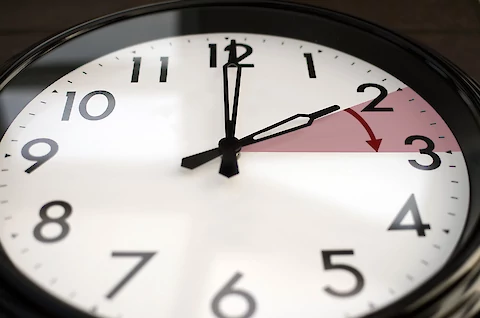
Daylight savings time can be especially disorienting for seniors with dementia. There are different strategies you can adopt to make the transition a little easier for your senior loved one.
What Is Daylight Savings Time?
Daylight Savings Time is a practice of shifting clocks forward one hour in the spring and then moving them back an hour in the fall. This was done to save energy. By adjusting all clock times, evenings enjoy more daylight.
How Can DST Be Disorienting for Seniors With Dementia on the First Couple of Days?
Seniors living with dementia can easily become confused when the clocks jump an hour forward or back. Here's a look at a few things that might lead to this confusion:
Skipped Hours
One of the most confusing elements about DST for seniors with dementia is that an hour of activity seems to "disappear". This may result in confusion and agitation, as activities they used to do at certain times no longer align with their body's clock.
Clocks With Different Times
Some seniors may become disoriented when clocks throughout their living space are set to different times. For example, having the time on a wall clock in the kitchen differs from that which is seen on an electronic device can cause further confusion and anxiety for those with dementia.
May Want to Eat Earlier or Later
During the first couple of days after the fall or spring switch, some seniors may assume they are hungry or thirsty at times that are outside of their regular eating patterns. You don't want your senior loved one to go hungry, so keep healthy snacks on hand.
How Can DST Be Disorienting for Seniors With Dementia in the First Couple of Weeks?
During the first few weeks after DST, one of the most disorienting elements for seniors is waking up and realizing it's darker outside than usual. This can make them feel like sleeping in. Additionally, friends or family members, who live in areas that don't follow daylight savings time, may cause further confusion when they call.
Strategies to Help Seniors With Dementia Adjust to Daylight Savings Time
Several strategies can be used to help seniors with dementia adjust to daylight savings time including:
Gradual Adjustment
You can gradually adjust the time for your senior loved one over a few days or weeks, depending on their level of confusion. Also, gradual changes will help them get used to the new scheduling more easily
Maintain Their Routine
It's important to maintain a routine schedule throughout the year, even when daylight savings time has taken effect. This includes activities like eating meals and exercising at consistent times each day.
Reduce Common Stressors
To make the transition easier, try to reduce stress in your senior loved one's environment by minimizing noise and distractions. You can do this by limiting visitors or taking calming breaks throughout the day.
Senior Helpers Folsom-Granite Bay Offers Support Throughout the Year
Daylight savings time can be a confusing change for seniors living with dementia in Folsom, Loomis, Orangevale, Penryn, Rocklin, or Granite Bay. You can help make the transition a little smoother with some of these strategies. Senior Helpers Folsom-Granite Bay provides the support you and your senior loved one need. Contact us today!